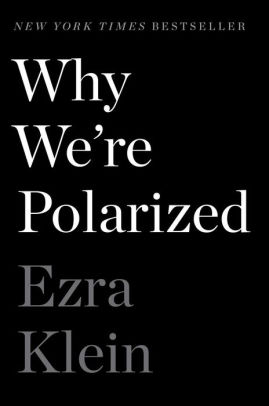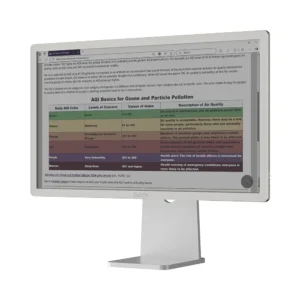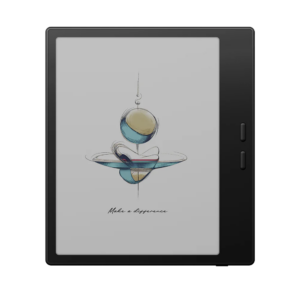The 509 election 3 years ago was supposed to be a watershed moment for Malaysia and Malaysia politics. A lot of us had high hopes for the new government. With the end of the BN hegemony, we hoped that our country will enter into a new era: corruptions tampered if not eradicated, unfair laws reformed or replaced with fairer ones, racial and religious tensions resolved, economy reinvigorated and the society became more open, tolerant and transparent. Alas, what transpired was not what we hoped for. The reforms were slow in coming, racial and religious tensions reached even higher pitch than before, the economy didn’t seem to improve, and the inherent internal political instability within the coalition finally cumulated in the now infamous Sheraton move, which saw the collapse of the multiracial PH government and the rise of the new Malay-Unity PN government.
It’s not the purpose of this post to assign blame, but rather to understand the reason of the polarization that bedevils our country till this day. For this purpose, I found the book with the same name by Ezra Klein, “Why are we polarized”, contains insightful nuggets.

The backdrop of this book is set against the rise of Donald Trump, arguably the most polarized, most conservative– or should I just say, most racist– figure that appeared in the recent American politics. The rise of Donald Trump left many people asking how can such a polarization figure became the most powerful person of the most powerful country in the world. But really we should be asking ourselves how can a figure such as him not rising earlier.
Probing the second question is fruitful, because it reveals the deep cleavage that has been dividing the American politics since 1960s. And the cleavage is built around Identity Politics— “We are democrats and you are republicans”. It doesn’t really matter whether our party or our leader is faithful to the ideology, it also doesn’t really matter whether the other parties are really moving closer to you in terms of deeds, what matters is “they are not us”. In other words, we oppose them just because, well, they are them.
In the recent years, the Identity Politics in the US gets solidified and stratified, so much so that the presidential candidates from both parties only need to concentrate on the few swing states during the election. It’s a waste of time to convince the near coastal states such as California and New York to switch to Republicans, or for democrats to campaign in the rural states like Kansas. They are not going to change their mind.
The factor that contributes to Identity Politics? Tribalism, the demographic change and media, among the three. I’m not going to delve into details here, interested readers can get the book and read for themselves. I just want to comment on how these three factors give rise to polarization in the local political context.
On the outside Malaysia is a multi-ethnic and multi-religions country, and the rest of the world “looks at us in envy for how we manage our coexistence”. But deep inside, we all know that the truce doesn’t come too easily, that the racial and religious tensions always seem to be simmering on the boiling point. The reason why people are so easy to identify along racial or religious line has to do with how we survive as a group/society for many thousand years. It is only recently that people start to move into cities and comingle with so many people, but for most of the time in the history we were living with a small group of people, and we seldom saw outsiders. Astute politicians know this, and they know when and how to play up the flash points for their own gain.
In the US, the declining majority of the white population give rise to the anxiety of the Whites; Donald Trump was their best hope to preserve their identity and privileges, and to “fight against the liberals and the immigrants who wanted to chip our jobs, identities and privileges away”. His moral and intellectual failure was no longer a concern, because “he is one of us”. But in Malaysia ( especially West Malaysia), unlike the US, the same fear still exists within the largest ethnic group despite that their proportion in numbers is increasing all the time. For reasons I can’t understand, the Malays are still fearing that the other minority races can usurp their political and economical dominance anytime. This is what in-group/out-of-group mentality can do to us, it turns us into simpleton that can only see black and white.
To those who hope that Sarawak is a role model for the rest of the nation in terms of racial harmony, there is another form of insidious tribalism at play, courtesy of the ruling coalition ( Gabungan Parti Sarawak, GPS) , “stateism“– nationalism on a state level. At a time when the East and West Malaysians are increasing comingling together, stressing that XXX party should be rejected just because they are outsiders seems especially anachronistic to me. I don’t see how stateism is an improvement over racism/religious bigotry that so often bedevils the rest of the Malaysia. Both are Identity Politics all the same.
To be fair, tribalism happens across the political divides, despite that some might think smugly that they are not being infected by the same disease that ails their political opposites. Just for an example, the boy from Sandakan used to be hailed as a beacon of the country, but after he engineered the coup, he was….well, just an actor. Now I’m pretty sure a lot of people knew that he had the acting career on the side right from the start, but then they chose to hush up just because “he is our SOB“. When he is no more one of us, he reverts back to who he is, namely, just an actor. To me this is also Identity Politics.
Another source of polarization is media, both in US and around the world. The dynamics works like this: in order to catch eyeballs and ad dollars, the media has to “stand out”, which means that it prefers outrageous over truthful, more balanced opinion. Donald Trump knew this, and he played it to his advantage. His extreme views got amplified many times over, in conservative and liberal media alike. Without the excessive media attention he won’t even get selected as the Republican candidate, let alone the POTUS. Extreme opinion begets an equally–if not more– extreme rebutting opinion from the other side, and a vicious cycle ensures. This is how moderates get sidelined, and the extremes from both sides prevail. The good thing is that now you know where you stand and who to vote for, the bad thing is polarization.
Don’t worry! You might think, unlike US where the media is either left or right, here we have fair and balance media, like malaysiakini.com, that strives to be fair and balance and unemotional. Well, funny that you should mention MalaysiaKini; MalaysiaKini’s comment section is one of the most lopsided comment section I’ve ever seen ( but it’s fair to point out that most of the local media outlets don’t even dare to enable theirs). Due to the market segment ( highly educated and urban), the comments are 99% Pro-PH. This is definitely not a fair representation of the whole country. Political observers who only read MalaysiaKini is missing a good chunk of real sentiment on the ground, and readers who read only MalaysiaKini and its comment section are more likely get stuck in their own echo chambers and becoming increasingly skewed in their perception.
How to solve the problem?
The author does have some ideas, but is wary that such a complicated problem has bullet-point-like solutions. Among them are structural reforms to the US electoral system and a call to the voters to “focus more on local politics instead of national” and to “meditate”. Not very practical, I afraid.
To me, the problem of polarization is very hard to solve because a lot of us– especially the beneficiaries– don’t want it to be solved. Why would they want to? They are deriving handsome dividend from the whole play act, and you expect them to let go of it for “the good of the nation”? This is especially true in Malaysia, whereby the institutions are being used to reinforce the stereotypes and the prejudice is deeply systematic.





